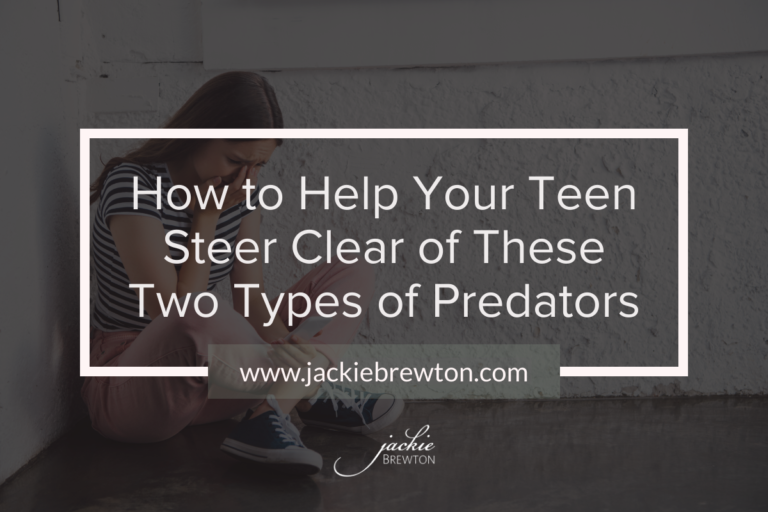Protecting Your Child from Sexual Assault
 On May 1st, I will begin my blog series “Teens Tell All: Top 20 Reasons why Teens DO and DON’T Have Sex,” in support of Teen Pregnancy Prevention Month.
On May 1st, I will begin my blog series “Teens Tell All: Top 20 Reasons why Teens DO and DON’T Have Sex,” in support of Teen Pregnancy Prevention Month.
However, I decided to address one of those reasons this week since April is Sexual Assault Awareness Month.
Since beginning this work, I have been blown away by the large number of girls who reveal in their anonymous letters that they have been raped or molested.
Unfortunately, very few of the young ladies received any counseling (in some cases they did not even tell anyone), and instead began to self-medicate their pain. For many of them, sex simply became their medication of choice.
For example, this 8th-grade young lady’s sense of value was lost after being molested, which is what I often hear:
“I thought because I had been molested twice on two different occasions, it didn’t matter anymore, my life or anything. So, I gave sex to guys in the past.”
Why Don’t Girls Tell?
They do not think anyone will believe them…
“To give you a little background, when I was younger I was molested for years by my younger brother’s dad. I never once told anyone but my best friend. Even after years of her encouraging me to speak out I couldn’t; it was as if I lost my voice. At a young age I went numb, nightmares and the lack of sleep just turned worse. Every day I wonder what difference it would have made if I could have moved past my fear of no one believing me. Who would? I was just a child. I was to be seen not heard.
As a senior in high school, my mom now knows and I’m now a lesbian.”
Many times they are not believed…
“I was raped when I was 12 and my mom didn’t believe me. Soon after that, I had sex because I wanted to be in control of whether I had sex or not, not the guy.”
Can you imagine a girl having sex just so she would not have to worry about being raped again? So that sex will never be TAKEN from her again, she will just GIVE it away!
I cannot count the number of times I have heard from teen girls that their mothers did not believe them when they told them they had been raped or molested. Please let your children know you will investigate any accusation they make against anyone! They cannot doubt that they will be believed. It is costing them way too much when they keep it a secret!
Where does the rape/molestation lead?
It often leads to a life of promiscuity.
“At age 11, I was molested at a family event and didn’t speak up for myself. A year after that, I was raped at age 12. This rape traumatized me so bad. I couldn’t eat, sleep or speak! I ask myself all the time, “Why me?” After all of this happened to me, I went on a wild escapade. From 13-16 I had a total of 18 sexual partners; only 3 were boyfriends.I was just so lost with myself and I thought having sex was going to make me happy.”
Here is what the statistics reveal:
According to a study conducted by the CDC, in 2010 nearly 1 in 5 women — or 1.3 million women — reported rape or attempted rape. For 80% of women, attacks first happened before age 25; and for 42%, before age 18. Most women knew their assailants: 51% were raped by a partner, and 48% were raped by an acquaintance.
There were far fewer male rape victims, but among them, 28% said they were first raped before the age of 11. While 52% of men were raped by an acquaintance, just over 15% were attacked by a stranger.
Though all of the letters above are from girls, molestation also happens with boys. Boys are just not as open to sharing it with me in their letters, but they also need protecting!
Child abuse experts say effective prevention programs for younger children cover the following topics:
o the difference between “good” and “bad” touching
o the child’s right to control what happens to his or her body
o the importance of telling an adult, even if victims have been told to keep what has happened a secret
o assertiveness skills, such as how to say “no” to authority figures
o where they can go for help.
If we are going to turn the tide on this heartbreaking issue, parents must become more vigilant about protecting their children, even when their children become teenagers.
The following are practical things you can do:
1. Be very selective about allowing your children to attend sleepovers at friends’ houses. Make sure you REALLY know the parents of your children’s friends and can be assured they share your values.
2. Do not assume your child is safe with someone just because that person is a relative. Much of the sexual abuse is committed by a relative.
3. Create an envirornment in your home where your children feel comfortable talking with you about anything! They must know you will love them unconditionally no matter what!
4. If you begin to notice behavior that is out of the ordinary for your teen (i.e. depression, becoming a loner, cutting, dressing provocatively, etc.), don’t just blow it off as “just being a teenager.” Get at the root cause of the issue, because you can believe there is one.
Do you have any practical tips to add to the list? If so, please share them below.




Monica N
April 29, 2013 at 8:10 amExcellent post, Jackie. I've shared as well. This is information all parents need to know or to be reminded of.
Jackie Brewton
April 29, 2013 at 9:27 pmThank you Monica for sharing! I receive WAY too many letters from students about the abuse they have suffered.
Chris
May 1, 2013 at 10:12 pmJackie,
Great post and thank you for having the courage to call out such an important issue! I pray that God continues to touch your life to open the eyes of those who need to see and heal the hearts of those who are hurting…
Stay Focused,
Chris
Jackie Brewton
May 1, 2013 at 11:54 pmThanks for all of your support Chris!